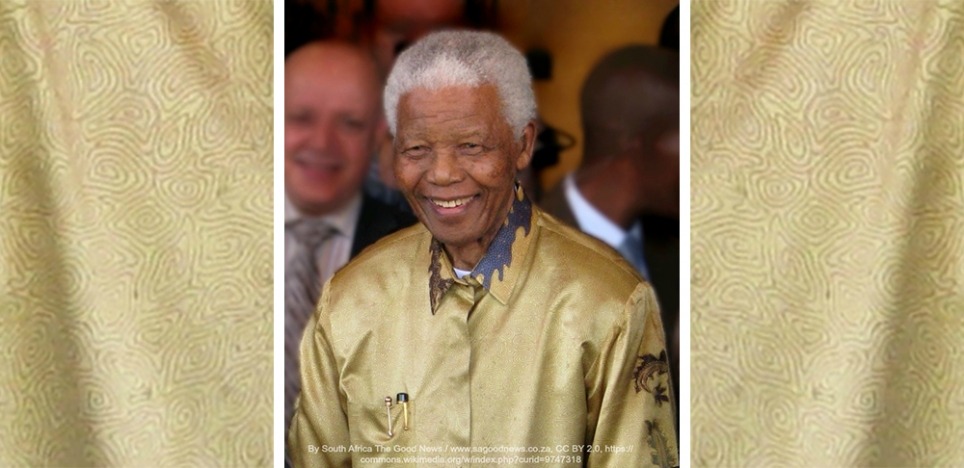Nelson Mandela — the Nobel Peace Prize laureate who served as South Africa's President from 1994 to 1999 — was born into the Xhosa clan in the village of Mvezo, South Africa, on July 18, 1918. Hearing the elders’ stories of his ancestors’ valor during the wars of resistance, he dreamed of making his own contribution to his people's struggle for freedom.
After studying law at the University of Fort Hare and the University of the Witwatersrand, he worked as a lawyer in Johannesburg. He became increasingly politically involved and joined the African National Congress (ANC) in 1944, when he helped to form the ANC Youth League (ANCYL).
Mandela came to be renowned for his courageous activities against apartheid, a system of segregation that gave white people exclusive privilege. In 1962, he was arrested for conspiring to overthrow the state and subsequently spent 27 years — 10,052 long and painful days — in prison. He remained undeterred in his goals and rejected at least three conditional offers of release that would have compromised the integrity of his purpose.
He was finally set free in 1990 and immersed himself in official talks to end white minority rule. In 1991 he was elected ANC President, and in 1993 he and President F.W. de Klerk jointly won the Nobel Peace Prize. On May 10, 1994 — only weeks after his first opportunity to vote — Mandela was inaugurated as South Africa’s first democratically elected President. He devoted his presidency to striving for racial reconciliation, investigating past human rights abuses, encouraging land reform, fighting poverty, and increasing healthcare.
He died at his home in Johannesburg on December 5, 2013.
To Name This Day:
 Quotes
Quotes
Choose one of these quotes from Nelson Mandela to remind you of your own sense of purpose today:
"Do not judge me by my successes, judge me by how many times I fell down and got back up again."
"I have fought against white domination, and I have fought against black domination. I have cherished the ideal of a democratic and free society in which all persons live together in harmony and with equal opportunities. It is an ideal which I hope to live for and to achieve. But if needs be, it is an ideal for which I am prepared to die."
"For to be free is not merely to cast off one's chains, but to live in a way that respects and enhances the freedom of others."
"Real leaders must be ready to sacrifice all for the freedom of their people."
"It always seems impossible until it's done."
 Spiritual Practice
Spiritual Practice
In "Nelson Mandela’s letters detail his 27 years as the world’s most famous political prisoner" (L.A. Times, July 13, 2018), Bob Drogin writes:
"Almost from the day he was arrested in 1962, Mandela took pen to pad and in cramped cursive wrote heart-rending missives to his wife and five children (and later numerous grandchildren), defiant letters to prison authorities and government ministers, anguished condolences to the families of fallen freedom fighters, explorations of African and colonial history, even a wistful letter about amasi, a traditional fermented milk that he desperately missed.
"Underlying them all was his unfaltering optimism in the inevitability and righteousness of his cause — the end of white supremacy and democratic self-rule for the black African majority."
Although few of us have given up anywhere near as much as Nelson Mandela did to follow our ideals, most of us have made some difficult choices so that we could sustain a commitment or reach for a goal. Write a letter or record a message to your grandchild or to an imagined child in the future, telling them about the causes to which you give your love and attention. Share what you have missed as you gave up some choices to follow others. Let them know the ways in which you kept your care for your family alive in the midst of your other commitments. Describe one or two underlying principles that have kept you moving forward in pursuit of a world that will be a good place for future generations to live.
